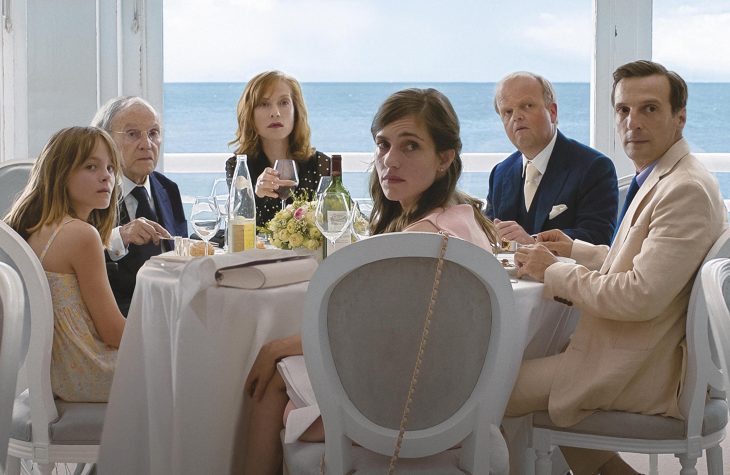The title is ironic. The end is not happy for Michael Haneke’s bourgeois French family, whose hamper of festering secrets the Austrian director unpacks with glee. His twelfth feature, which is vying for an unprecedented third Palme d’Or at this year’s Cannes Film Festival, features an acting masterclass from French veteran Jean-Louis Trintignant as Georges Laurent, a dotty patriarch who has lost the will to live.
For added piquancy Haneke has set his latest tale in the northern French city of Calais where po-faced immigrants stroll silently about the streets – their lack of menace no doubt intended as a counterpoint to the dastardly doings of the Laurent family. The significant youngest member of this clan, a 13-year-old girl (played with stunning composure by Fantine Harduin), is the first to reveal herself lacking in moral scruples.
After her mother is rushed to hospital she moves into the Laurent family’s stately abode where her divorced father, a deceptively meek doctor (played by Mathieu Kassovitz), is living with his new wife and their infant baby. It is here that she becomes acquainted with her grandfather for the first time and her aunt, Anne (Isabelle Huppert), who has taken over the running of the family’s struggling construction business with an ever-acute appetite for cutting corners.
In one imperious mise en scène, Haneke uses a long shot to film a potentially fatal catastrophe on one of the family’s building sites, where a flush of Portaloos coming tumbling down in a landslide. When there is an inquiry Anne does all she can to shift the responsibility onto her only son’s less than broad shoulders.
Into the mix Haneke adds a north African family of servants who cater to the Laurents’ every need and a fierce Alsatian dog that barks with menacing insistence. At the age of 75 Haneke shows that he has lost none of his command of the medium. The framing of every scene is impeccable and there tends to be something going on in the background of each shot that demands the viewer’s full concentration.
The question, as with many Haneke films, is whether the sum of Happy End‘s disparate parts adds up to an effective whole. The immigrant strand of the storyline doesn’t really coalesce into something that impacts the Laurent family in any significant way. But perhaps that is Haneke’s point: their almost ghostlike presence is quite easy to ignore. Meanwhile, the north African family, incarnated by the sad-faced father, Rachid (Hassam Ghancy), are terrified of losing their jobs and are prepared to put up with almost any slight to keep themselves in employment.
What makes this a superior film though is the extraordinary performance of Trintignant who picks up where he left off in Haneke’s last film Amour by showing he is that rare actor who has you hanging on his every last word.






Comments